Episodes
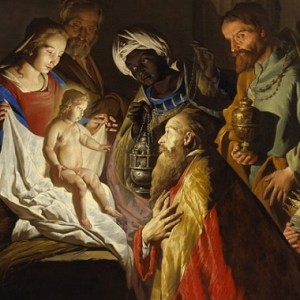
Tuesday Dec 31, 2019
The Magi in the Poetry of Yeats and Eliot with Dr. Glenn Arbery
Tuesday Dec 31, 2019
Tuesday Dec 31, 2019
‘A cold coming we had of it,
Just the worst time of the year
For a journey, and such a long journey:
The ways deep and the weather sharp,
The very dead of winter.’
Those lines are the beginning of T. S. Eliot’s poem “Journey of the Magi,” an imagined first-person reflection by one of the Magi on the long trip to Bethlehem.
St. Matthew’s Gospel makes it clear that these were the first Gentiles, the first non-Jews to worship Christ. And they, their journey, and their gifts—gold for a king, frankincense for a God, and myrrh with its aroma of death—have attracted a good deal of interest and imagination over the centuries.
As we prepare for the Feast of Epiphany, Wyoming Catholic College president Dr. Glenn Arbery discusses Eliot’s poem (written in 1927) as well as one written by William Butler Yeats some years earlier (in 1916).
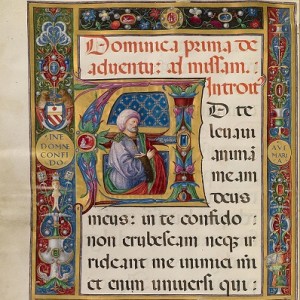
Tuesday Dec 03, 2019
Advent: Worship, Wonder, and Waiting with Fr. Paul Ward
Tuesday Dec 03, 2019
Tuesday Dec 03, 2019
“The coming of God’s Son to earth,” says the Catechism of the Catholic Church (522), “is an event of such immensity that God willed to prepare for it over centuries. He makes everything converge on Christ: all the rituals and sacrifices, figures and symbols of the 'First Covenant'. He announces him through the mouths of the prophets who succeeded one another in Israel. Moreover, he awakens in the hearts of the pagans a dim expectation of this coming.”
As the world around us accelerates into the Christmas holiday season immediately after Thanksgiving—Santa figuring prominently at the end of the Macy’s Thanksgiving Day Parade in New York City—we Christians wait. And waiting is precisely the theme of Advent, the four weeks preceding Christmas Day and the twelve days of the Christmas season.
As we move into Advent, Fr. Paul Ward, one of our two chaplains at Wyoming Catholic College, answers some questions about Advent and preparing for Christmas.
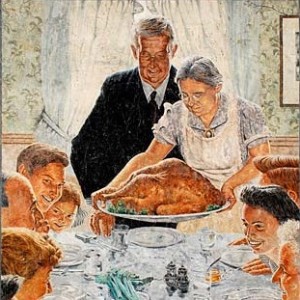
Tuesday Nov 26, 2019
Thanksgiving in Literature and Life with Dr. Glenn Arbery
Tuesday Nov 26, 2019
Tuesday Nov 26, 2019
St. Paul wrote to the Christians in Ephesus, “always and for everything giving thanks in the name of our Lord Jesus Christ to God the Father.” And it is, you know, more of a commandment than a suggestion. As Catholics giving thanks is a daily obligation. “No duty is more urgent,” said St. Ambrose, “than that of returning thanks.” The Holy Mass itself is the Eucharist, a word taken from the Greek word εὐχαριστία, thanksgiving.
Having said that about daily thanks, it is good and wise to set aside specific days or seasons to give thanks. The blessings we enjoy day-to-day as Americans are unprecedented in history. And yet so often, rather than reflecting gratitude back to God, we quietly think, “So what have you done for me lately?”
This week of Thanksgiving, Wyoming Catholic College President, Dr. Glenn Arbery reflects a bit about gratitude in the spiritual life, the life of Wyoming Catholic College, and in literature.
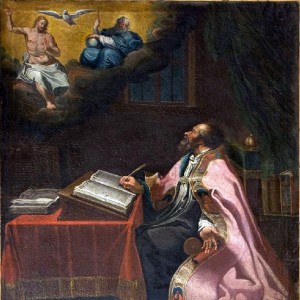
Tuesday Nov 05, 2019
Mysticism in Our Cultural Wasteland with Dr. Jason Baxter
Tuesday Nov 05, 2019
Tuesday Nov 05, 2019
In his newest book, The Irony of Modern Catholic History, George Weigel argues that in our secular and increasingly non-rational culture, the Catholic intellectual tradition could save the mind of the West. Similarly in a new book-in-progress, Wyoming Catholic College’s Dr. Jason Baxter argues that in our disenchanted and materialistic culture, Catholic mysticism could save the spirit of the West.
Dr. Baxter’s new book is about mysticism and about what we can learn about prayer from the Church Fathers. A few weeks ago, he shared his initial chapter with our faculty.
In that chapter, Dr. Baxter starts by noting that beginning in the early twentieth century, “for the first time in human history, it was possible to spend your whole life not just without encountering God, but without knowing you were supposed to.”
The question is: Where do we go from there?
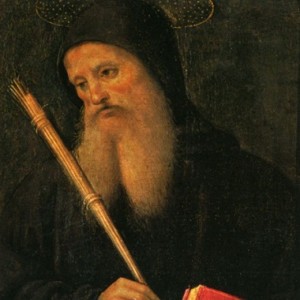
Tuesday Oct 29, 2019
Benedict's Rule at College and at Home with Prof. Kyle Washut
Tuesday Oct 29, 2019
Tuesday Oct 29, 2019
“Listen, my son, to your master's precepts, and incline the ear of your heart. Receive willingly and carry out effectively your loving father's advice, that by the labor of obedience you may return to Him from Whom you had departed by the sloth of disobedience.”
Those words are from the beginning of St. Benedict's Rule for Monasteries, the topic of this fall's all-school seminar here at Wyoming Catholic College. On October 24, the entire school community gathered for Mass followed by a Benedictine-style lunch--eating in silence as we listened to a reading about the Benedictines from St. John Henry Newman. After lunch we chanted the office and listened to some introductory remarks about the Rule before breaking up into seminar groups led by our seniors. A festive dinner followed.
Prof. Kyle Washut, our Academic Dean, was the creative force behind the day and is our guest this week on The After Dinner Scholar.
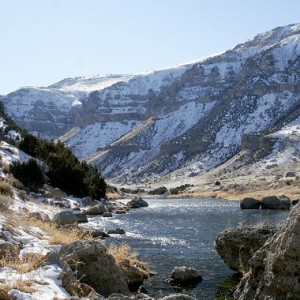
Tuesday Oct 15, 2019
Field Science in the Wide Wyoming Wilderness with Dr. Sam Shepherd
Tuesday Oct 15, 2019
Tuesday Oct 15, 2019
While walking our dog, Maggie, near the Popo Agie River on a frigid day last winter, I noticed a tiny, slate-grey bird standing on the ice next to open water. As I watched, the bird, an American dipper, dove into the water and disappeared. A little while later, it popped out of the river and back to its spot on the ice. I was transfixed with wonder.
Maggie and I have also seen kingfishers, American kestrels, lots of mule deer, various kinds of snakes, ruffed grouse, and, to my shock, a badger in our backyard. Add to the animals, all the plants and flowers, the geology, the weather, the night sky and we can’t help say with Psalm 104, “O Lord, how manifold are your works! In wisdom you have made them all; the earth is full of your creatures.”
Wyoming Catholic College students study God’s Creation as part of our math and science curriculum under the watchful eye of Dr. Sam Shepherd. Dr. Shepherd and his family moved from Ireland this summer to join our faculty. He is our guest this week on The After Dinner Scholar.
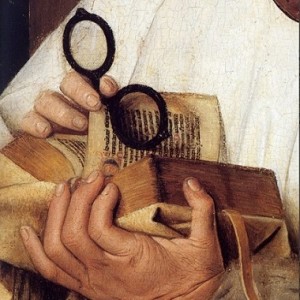
Tuesday Sep 10, 2019
Christ, the Incarnation, and the Scriptures with Prof. Travis Dziad
Tuesday Sep 10, 2019
Tuesday Sep 10, 2019
After graduating from Wyoming Catholic College in 2013, Travis Dziad completed his Masters in Theology in Austria at the International Theological Institute. Then he went into the Ph.D. in Theology at Ave Maria University.
This summer in addition to returning to Wyoming Catholic College as Teaching Fellow for Theology, Leadership, and Outdoor Education, soon-to-be-Dr. Dziad successfully defended his dissertation which was on the timely topic of the inspiration of Scripture. Prof. Dziad is our guest this week on The After Dinner Scholar.
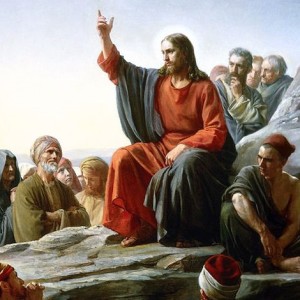
Tuesday Aug 20, 2019
The Challenge of the Sermon on the Mount with Dr. Jeremy Holmes
Tuesday Aug 20, 2019
Tuesday Aug 20, 2019
And Jesus said, “You have heard that it was said to the men of old, ‘You shall not kill; and whoever kills shall be liable to judgment.’ But I say to you that everyone who is angry with his brother shall be liable to judgment; whoever insults his brother shall be liable to the council, and whoever says, ‘You fool!’ shall be liable to the hell of fire.”
Those of us who have brothers or sisters or spouses can take little comfort from those words of Jesus. With those close to us getting angry, hurling insults, and yelling “You fool!” (or more likely “You idiot!” which expresses the Greek better) comes as second nature.
In fact, if we’re honest, the entire Sermon on the Mount (Matthew chapters 5 to 7) stands as an enormous challenge to the way we do most things most of the time.
This summer at PEAK, Wyoming Catholic College’s high school program, theologian Dr. Jeremy Holmes taught the Sermon on the Mount.
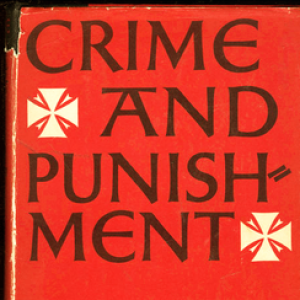
Tuesday Jul 23, 2019
"Unexpected Friendship: The Murderer and the Harlot" by Dr. Virginia Arbery
Tuesday Jul 23, 2019
Tuesday Jul 23, 2019
“On an exceptionally hot evening early in July a young man came out of the garret in which he lodged in S. Place and walked slowly, as though in hesitation, towards K. bridge.
“He had successfully avoided meeting his landlady on the staircase. His garret was under the roof of a high, five-storied house and was more like a cupboard than a room. The landlady who provided him with garret, dinners, and attendance, lived on the floor below, and every time he went out he was obliged to pass her kitchen, the door of which invariably stood open. And each time he passed, the young man had a sick, frightened feeling, which made him scowl and feel ashamed. He was hopelessly in debt to his landlady, and was afraid of meeting her.”
Thus begins Fyodor Dostoyevsky’s novel Crime and Punishment. "He" in this case is Rodion Romanovich Raskolnikov, a college drop-out living in abject poverty in 19th century St. Petersburg, Russia. Consumed with misery, anger, and a strange sense of self-importance, Raskolnikov will in the course of the novel commit a double murder plunging him even deeper into despair.
Along the way, he meets Sonia Marmeladov. She is the child of a hopeless drunk who, in order to support her father, his second wife, and his step-children, sells the only thing she possesses: herself in prostitution.
How the friendship between harlot and the murderer becomes the source of redemption is the topic of the novel and was the topic Dr. Virginia Arbery addressed at the 2019 Wyoming School of Catholic Thought. This is what she had to say.
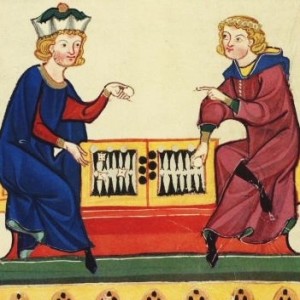
Tuesday Jul 16, 2019
Tuesday Jul 16, 2019
“There is nothing on this earth more to be prized than true friendship,” wrote St. Thomas Aquinas. In fact, he went on, “Friendship is the source of the greatest pleasures, and without friends even the most agreeable pursuits become tedious.”
Jesus made it clear that while the first and greatest commandment is to love God, the second is love for neighbor. And “neighbor” for Jesus even extends to enemies.
In the second part of the second part of the Summa Theologiae, St. Thomas Aquinas explored the question of love for God, neighbors, enemies, and friends.
At The Wyoming School of Catholic Thought, theologian Dr. Jeremy Holmes led us through Thomas’ thinking. Here, in part, is what he said.
Texts from St. Thomas Aquinas:
- Summa Theologae II.II, Question 23, Article 1; Question 25, Article 1; Question 26, Article 3
- Disputed Questions on the Virtues, Question 2, Article 2

